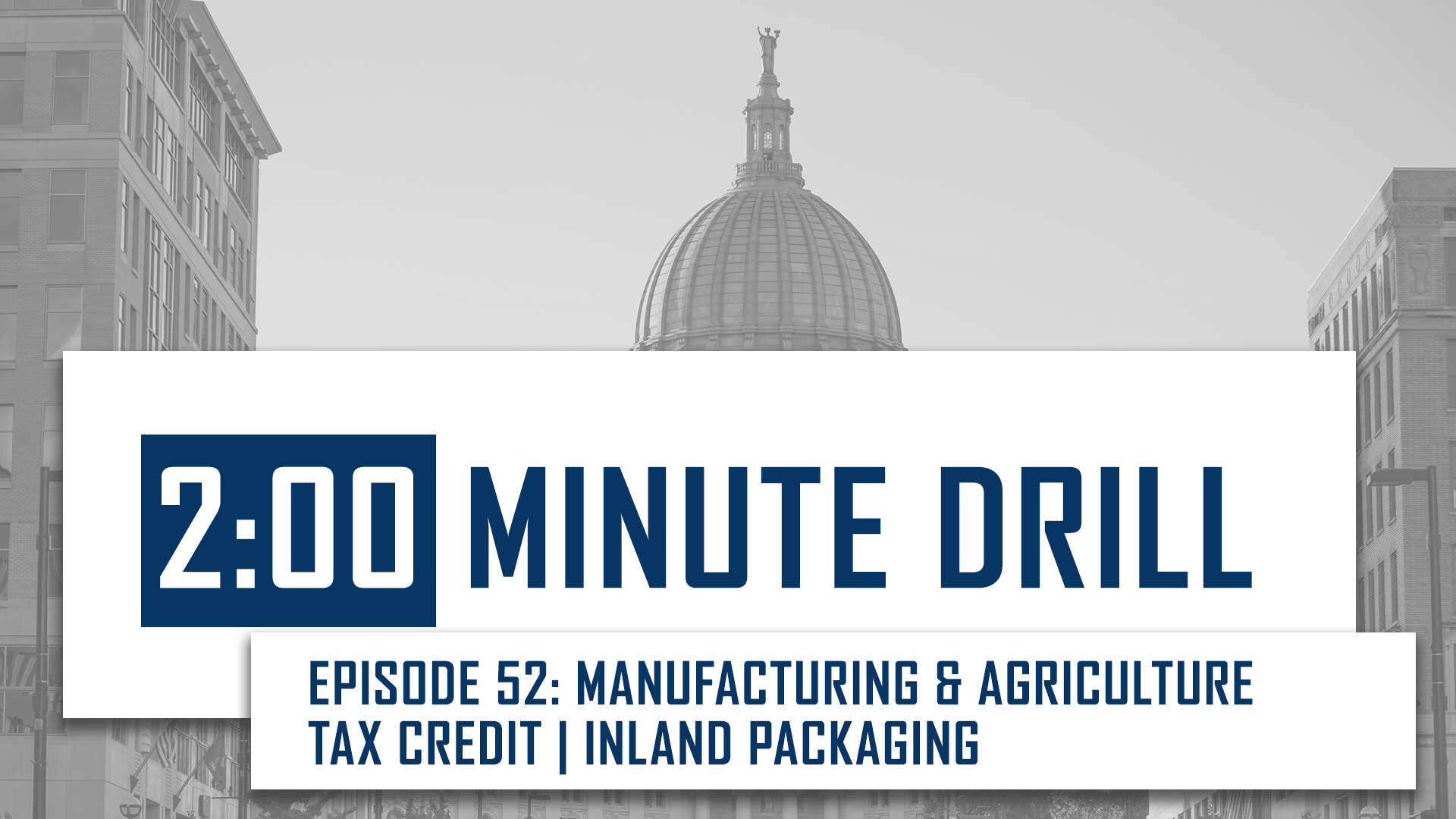By Evan Umpir
Proudly displayed on Wisconsin’s state flag is an arm and hammer, representing one of our historical, hallmark industries: manufacturing. Manufacturing contributed more than $71.5 billion to Wisconsin’s GDP in 2022, making it the state’s top industry. There are more than 9,000 manufacturers supporting more than 485,000 jobs around the state – meaning one in six people work in the industry.
The Manufacturing and Agriculture Tax Credit (MAC) has helped these two iconic Wisconsin industries remain strong. However, Gov. Tony Evers wants to limit the value of the MAC and raise taxes on manufacturers by more than $650 million in his proposed budget, despite the state having a projected $7.1 billion surplus.
The MAC was signed into law in 2011 as an incentive to locate manufacturing operations and produce goods here, rather than elsewhere across the country. To be clear, the MAC is not a handout, it must be earned. The amount of the credit is based upon the value of goods produced within our borders – more manufacturing means a higher credit. It’s a win-win for both manufacturers and the well-paid workers they employ.
Thanks in part to the MAC, manufacturing workers earn almost 40 percent more than others in Wisconsin. The average compensation for manufacturing is almost $80,000 a year – far more than the state average of $58,075. Clearly, manufacturing wages support a strong middle class and the state by generating income, property and sales taxes for all levels of government.
The MAC also helps Wisconsin manufacturing remain competitive across the country. Our state’s business climate has been slipping in recent years. According to the Tax Foundation, Wisconsin has dropped to 27th on their State Business Tax Climate Index. Wisconsin’s high corporate and individual income tax rates make companies less likely to invest and stay here. This is particularly true as forty-three states have adopted some type of tax relief in 2021 and 2022.
Thankfully, the MAC has been responsible for many manufacturers reinvesting in their employees and expanding their operations here because it erases Wisconsin’s image as a high-tax state.
I-K-I Manufacturing, a world-class aerosol contract manufacturer supporting about 175 employees and their families, has invested $20 million over the past five years on automation. As Wisconsin faces a worker shortage, companies are turning to investment in equipment to make up for unfilled positions. The MAC helps companies both afford these expensive machines, and reinvest in employees by paying higher wages and increasing training for employees already working on the factory floor.
Across the state, companies like I-K-I Manufacturing are also investing in hiring new employees and expanding here in Wisconsin. In De Pere, Belmark invested hundreds of millions of dollars in buildings and equipment, and they hired hundreds of more employees since the inception of the MAC. Large and small manufacturers alike are benefiting. All-Color Powder Coating near Madison, which employees about 65 people, used the savings from the credit to invest $1.5 million into a new production line and added 10 additional employees. These are just a few examples of the direct impact the MAC has across the state for manufacturers and their workers.
Despite the success of the MAC over the past decade, Gov. Evers has proposed limiting this pro-growth tool, placing a $650 million tax increase on Wisconsin manufacturers. At a time when America recognizes the importance of re-shoring manufacturing to the United States, Wisconsin’s manufacturing industry has a huge opportunity for growth.
Limiting or eliminating the MAC would have a profound impact on Wisconsin’s top industry and threaten countless high-paying careers. Despite having a projected $7.1 billion surplus in state coffers, Gov. Evers wants to extract money from the manufacturing sector to spend 22 percent more on growing government.
Even with this massive tax hike, somehow Gov. Evers’ budget would turn a $7.1 billion surplus into a $2.8 billion deficit by the end of the next budget cycle. Wisconsin should be focused on growing the manufacturing sector and supporting workers and their families, not stifling our economy and digging us into a vast budget hole.
While Gov. Evers is wrestling with how to make products from Wisconsin more expensive, our state’s manufacturing sector is focused on investing in its workers and producing goods that are second to none.
The MAC helps keep Wisconsin competitive with other lower- and no-tax states, and it has resulted in higher wages and more investment in the industry. Let’s be proud of the arm and hammer on Wisconsin’s flag and support our manufacturing sector. As the Joint Committee on Finance holds public budget hearings this month, join me in telling Gov. Evers and legislators that we should retain the full value of the Manufacturing & Agriculture Tax Credit.
Evan Umpir is Director of Tax, Transportation & Legal Affairs at Wisconsin Manufacturers & Commerce – the combined state chamber and manufacturers’ association.
Read this column in the Wisconsin State Journal and in the Lakeland Times.





